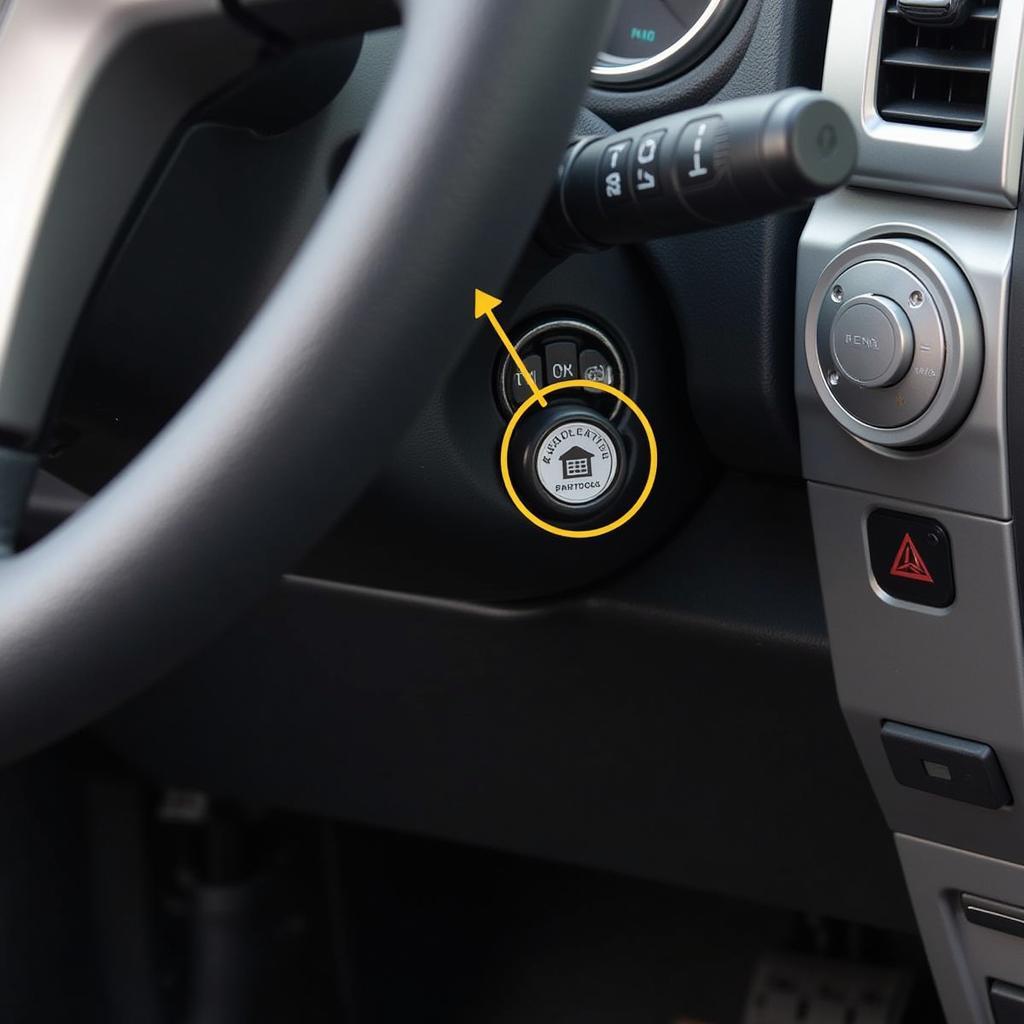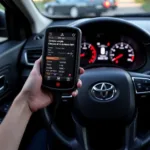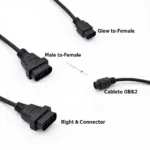The OBD2 port in your Toyota 4Runner is your gateway to understanding your vehicle’s health and performance. Whether you’re a seasoned mechanic or a DIY enthusiast, this port allows you to tap into your 4Runner’s onboard computer and unlock a wealth of information. This comprehensive guide will cover everything you need from locating the OBD2 port on your 4Runner to common issues and their solutions.
Locating the OBD2 Port on Your Toyota 4Runner
Finding your 4Runner’s OBD2 port is typically straightforward. In most models, it’s located under the driver’s side of the dashboard, often near the steering column or the fuse box. The port itself is a trapezoidal 16-pin connector, often covered by a small plastic cap.
Can’t find your OBD2 port? Refer to your owner’s manual for the precise location in your specific 4Runner model year.
Troubleshooting Common 4Runner OBD2 Port Issues
While the OBD2 port is generally reliable, you might encounter some issues. Here are some common problems and how to address them:
- Loose Connection: Ensure the OBD2 connector is securely plugged into the port. A loose connection can disrupt communication.
- Blown Fuse: Check the fuse box for any blown fuses related to the OBD2 port or the cigarette lighter (often on the same circuit).
- Damaged Pins: Inspect the OBD2 port for bent, broken, or corroded pins. A multimeter can be helpful in testing for continuity.
- Dead Battery: A dead or very weak battery can prevent the OBD2 port from powering on. Try jump-starting your 4Runner.
Important: If you suspect any damage to the OBD2 port or wiring, it’s best to consult a qualified mechanic to avoid causing further damage.
Frequently Asked Questions About the 4Runner OBD2 Port
1. What is the OBD2 port used for in a 4Runner?
The OBD2 port allows you to connect diagnostic tools, such as code readers and scan tools, to access your 4Runner’s onboard computer. This allows you to:
- Read and clear diagnostic trouble codes (DTCs)
- Monitor engine performance data (RPM, speed, temperature)
- Analyze sensor readings (oxygen sensors, MAF sensor)
- Perform emissions testing
- Customize vehicle settings (in some cases)
2. Can I leave an OBD2 device plugged in all the time?
It’s generally not recommended to leave an OBD2 device plugged in permanently. While most devices have a low power draw, it’s best to disconnect them when not in use to avoid any potential battery drain issues.
3. What is the difference between an OBD2 code reader and a scan tool?
OBD2 code readers: These are basic devices that can read and clear DTCs. They are generally affordable and easy to use.
Scan tools: These are more advanced devices that provide a wider range of features, including live data streaming, sensor readings, and advanced diagnostics. They are more expensive than code readers but offer more comprehensive capabilities.
Maintaining Your 4Runner’s OBD2 Port
To ensure the longevity and functionality of your 4Runner’s OBD2 port:
- Keep it clean: Regularly inspect the port for dust, debris, or corrosion. Use compressed air or a cotton swab with electrical contact cleaner to clean it.
- Handle with care: Avoid forcing connectors into the port, as this can damage the pins.
- Protect from the elements: If the port is exposed when not in use, consider using a protective cap to prevent moisture and dust buildup.
Getting the Most from Your 4Runner’s OBD2 Port
Your 4Runner’s OBD2 port is a powerful tool for understanding and maintaining your vehicle. Whether you’re a DIY enthusiast or prefer professional assistance, this port provides valuable insights into your 4Runner’s health and performance.
Need help with your 4Runner’s OBD2 port or have questions about diagnostic tools? Contact our expert team via WhatsApp: +1(641)206-8880, or email: [email protected]. We offer 24/7 customer support to assist you with all your automotive diagnostic needs.


